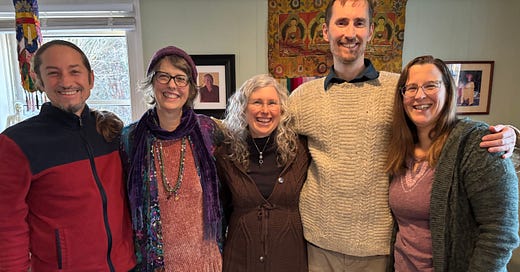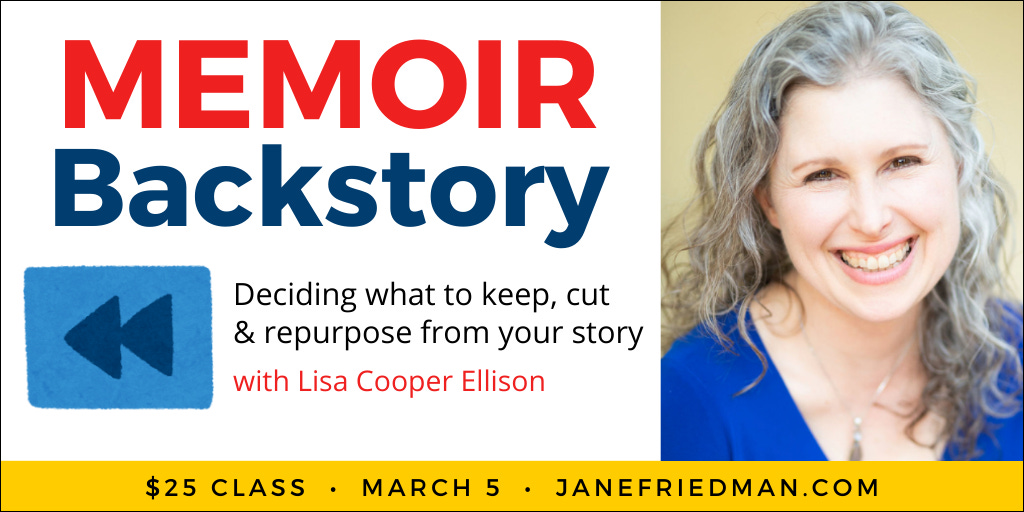Your Voice and the Power of Beginner's Mind
Learn how dedication, introspection, and these playful exercises can help you harness your voice and tell your story with clarity and purpose.
Quick Announcement: Starting this week, I will send a second, one-sentence reminder on Thursdays about the launch of this week’s podcast episode. Also, Los Angelenos displaced by wildfires can still use your support. Click here to learn how to help.
In the summer of 2024, one thing became clear: I didn’t want to suck at Tibetan.
I started learning the Sanskritized form last spring, after receiving an empowerment, or transmission of a sacred teaching, from a Lama in direct lineage to the original Buddha.
Learning Sanskritized Tibetan isn’t a mandatory part of this practice, but I’ve always loved the way my voice vibrates along with others, whether I’m singing or chanting sacred prayers. I also believe that using my voice in all its capacities supports my writing practice.
This endeavor wasn’t as daunting as it might sound, perhaps because I had a head start.
After becoming a Buddhist at age eight, I began learning Sanskritized Japanese. The first chant was a simple six-syllable phrase I easily mastered. Next came some more challenging excerpts from the second and sixteenth chapters of the Lotus Sutra, which I gained proficiency with over the next two years.
However, when practicing alone, I always skipped the harder middle section and silently followed along when in a group.
During the summer after I turned twelve, my aunt decided it was time for me to learn that middle section, which took most people around ten minutes to recite. Some days, she practiced slowly alongside me, but on many others, she left me to stumble over the words by myself.
I often got so tongue-tied that this ten-minute prayer took hours. I occasionally faked my way through it enough to satisfy my aunt. But I didn’t want to disappoint her—or myself—so I kept trying until I figured it out. By the end of the summer, I easily chanted along with everyone else.
Learning to cultivate your writing voice is a lot like learning Sanskrit: it takes dedication, butt-in-the-chair practice, and what creativity coach Paula Boyland and I recently spoke about: a commitment to the beginner’s mindset.
But before you get started, you need to know what you’re practicing and why.
Understanding Your Writing Voice
According to agent Rachel Gardner, voice is “the expression of you on the page.” It’s the quality of writing that lets you identify a Mary Karr memoir or a Stephen King novel from a lineup of manuscripts.
Some people believe voice is an ineffable quality inherent in the writer—the je ne sais quoi that makes your work distinctly yours. Most writers work their buns off to cultivate that je ne sais quoi.
Truly finding and developing it requires introspection and an investigation into who you are, what (and how) you write, and which writers you admire.
Technically, voice consists of six primary components: point of view, vocabulary, punctuation, syntax, rhythm, and descriptive technique.
We often think of point of view in terms of the lens we choose, for example, first-person “I,” second-person “you,” or third-person “she/he.” But it’s also the part of yourself you’re channeling.
In her craft book Acetylene Torch Songs, Sue William Silverman discusses prosopons, the Greek word for masks, we wear during our creative practice. She writes, “Each aspect of the self—internal and external—requires a distinct appearance, whether it be a full-fledged disguise or a simple tweak of a few metaphorical sequins.”
The you at seventeen is one mask; the you at thirty-seven another. But it’s not just about age: The identity you bring to the page also plays an important role. For example, the professional you likely uses a different vocabulary from mother you, or friend you. The same goes for your syntax, or the order of the words in your sentences, and how you punctuate them.
The clearer your prosopon, the more you can harness not just the specific ineffable qualities of your general writing voice, but the exact way this mask expresses it.
Finding Your Writing Voices
To truly understand what this looks like, you need to see yourself with fresh eyes.
Here’s an exercise to help you cultivate that beginner’s mind as you inhabit your writing voice:
Identify a house you could write about. This can be your childhood home or a house on your current street.
Describe this home as if you’re a child living there.
Next, describe the same home as if you’re a seventeen-year-old preparing to leave the family nest.
Now describe the same home as if you’re a thirty-seven-year-old (or, if you’re not yet thirty-seven, your current age) returning after a long time away.
Finally, describe this home as if you’re leaving it for the last time. If this hasn’t happened or seems unlikely, imagine it.
How did each mask change your description? Which one do you feel closest to? Which voice feels most distant?
For most of us, the voice we’re most connected to will feel most resonant. But you can harness a distant voice if you know why you’re looking back.
Yet awareness of what you do is just one part of the equation.
You also need to know what you value in your voice—something we’ll dive into next week.
Embracing the Process
For now, permit yourself to stumble through the process, which is exactly what I’ve done with my Tibetan. At first, I listened to how the words sounded in other people’s mouths. Then I whisper-mumbled along with the group. When that felt comfortable, I practiced alone in that halting way every novice knows. By the time I attended an end-of-the-year retreat, I’d mastered enough to read through the new prayers we were introduced to with relative ease. Better yet, I sang these chants with confidence and felt that beautiful vibration as our voices harmoniously united and attuned to one another.
Do I pronounce every word correctly every time? Nope.
But I’m getting better, which is exactly what will happen to your writing voice if you keep showing up. I firmly believe that practice was part of what allowed me to release The Big Bad Thing, which is helping me craft a stronger, clearer writing voice in my latest project.
Whether you spend this week journaling or working on a formal project, I hope you take a few minutes to connect with your voice and use that connection to write on.
Warmly,
Lisa
Your Turn: What do you love about your writing voice? What questions do you have about it? Share your thoughts in the comments so we can explore them together. You never know who your response might help or who you might meet by contributing to the conversation.
Thank you for taking the time to read this post; your support means so much to me. If this post resonated with you, here are four simple ways to support this Substack:
Subscribe to this Substack if you’re not already a follower
Like this post by clicking the heart
Restack this post (bonus points if you include a note)
Forward this email to a friend or share the link on social media
This Week’s Episode
Have you ever dismissed your feelings, discounted your writing wins, or told yourself you should feel differently about your writing projects? If so, you might be gaslighting writing practice. Join me as I discuss what gaslighting is, how it shows up in your writing lives, and most importantly, how you can gaslight-proof your writing practice.
Red Hot Writers
Are you a subscriber with a late December or January publication? Send me a message with the title and link so I can share your writing with our community. The deadline for this month's Red-Hot Writer List is 1/24/2025.
While I will link to pieces that promote a thoughtful dialogue between humans, I will not publish anything that promotes hate or demeans or denigrates marginalized communities
Sex in your post is okay, but I don't promote erotica
Posts to your blog or personal Substack and marketing-focused posts do not qualify
Milestone Makers
Are you a subscriber who’s reached a late December or January milestone? Reply to this email so we can celebrate your success. Milestones could be birthdays, reaching a specific goal, or hitting a benchmark on a long-term project. The deadline for reporting your milestone is 1/24/2025.
Upcoming Classes and Appearances
January
February
San Francisco Writers Conference
February 6 - 9, 2025 | Hyatt Regency in San Francisco, CA
Find me at…
Writing About Trauma Without Traumatizing Yourself
FUNdamentals: How to Plan A Podcast: The Ultimate Guide
Writing the Complexities of Friendship
Sign up for The Psychology of Memoir Conference Master Class on Sunday









wow. just wow.
Thank you, Lisa. I needed to read this today! A reminder to be patient and compassionate with my struggling beginner's mind.